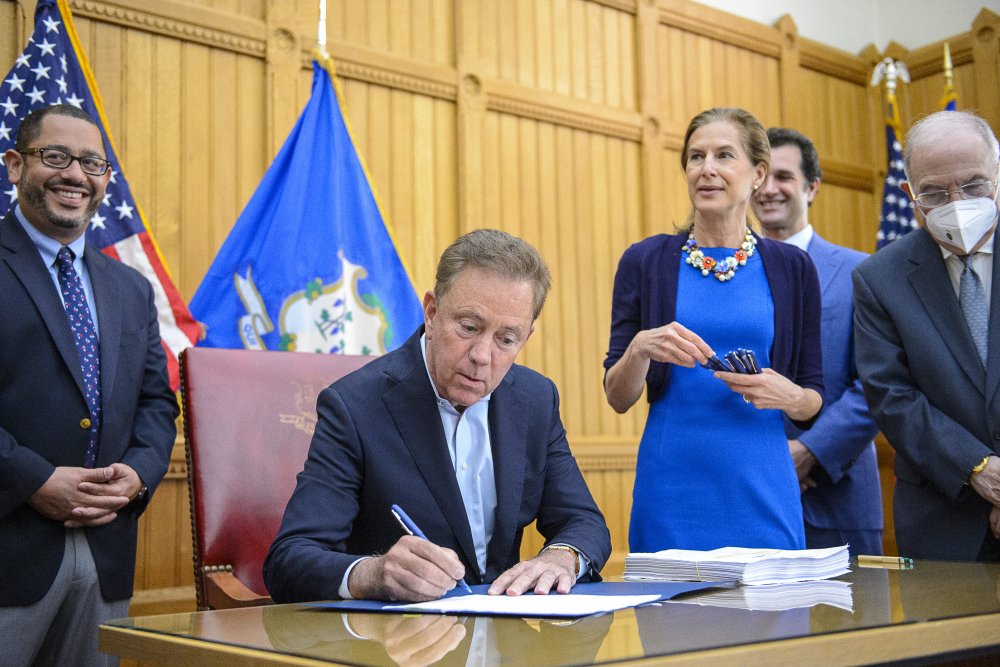The law allows individuals age 21 and older to possess or consume up to 1.5 ounces in a locked container in a home or in the trunk or locked glove box in the person’s vehicle.
The group, which advocated for the bill, noted the legislation sets aside 50% of licenses for equity applicants, which include residents of communities that have been “disproportionately impacted” by drug-related crimes and high unemployment.
The Connecticut Medical Society, which also opposed the bill during the session, voiced its disappointment Tuesday that Lamont had signed it into law.
“Physicians base our opinions on science, data from peer-reviewed writings, observation and patient interaction – which is why we believe the recreational use of marijuana is bad science, bad policy, and dangerous to Connecticut’s public health,” said Dr.
Gary Winfield, D-New Haven, co-chairman of the legislature’s Judiciary Committee, dismissed those criticisms, saying advocates wanted to finally address the long-standing harmful impacts of the nation’s war on drugs, especially in minority communities.
Legislative leaders have more than a month to appoint members of a new Social Equity Committee that will ultimately create criteria and review social equity applications for various licenses.
